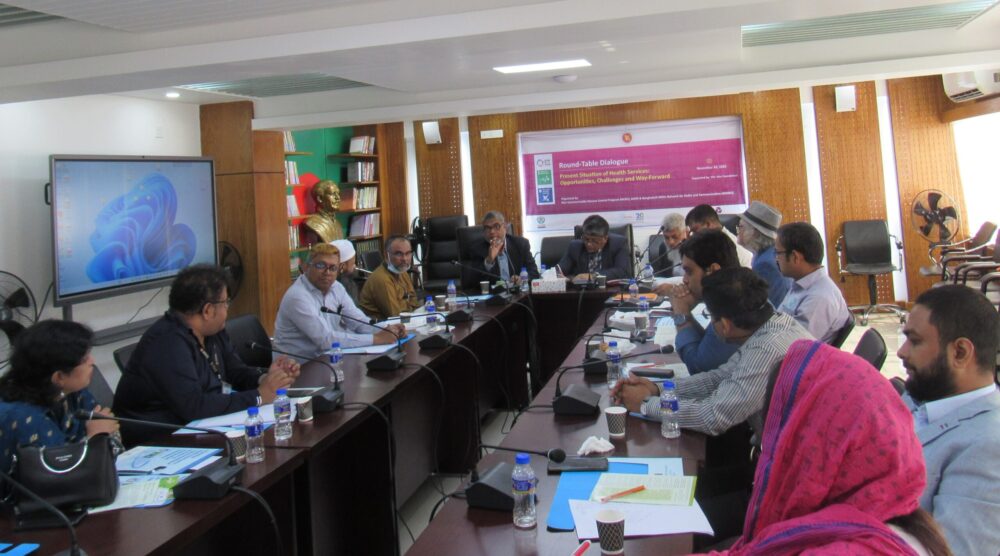Promoting Health Governance through Broadcasting and Dialogue
Organization: Bangladesh NGOs Network for Radio and Communication (BNNRC)
Country: Bangladesh
The goal of the project
Empowering Community People and Promoting Access to Reliable and Timely Information
Objectives
- To promote governance in health in the health sector and ensure quality health support for all
- To create an atmosphere in media houses for reporting for promoting health governance
Description: Please provide a short description of the project in 150 to 200 words describing the project’s objectives, results achieved, and impact generated.
Bangladesh NGOs Network for Radio & Communication (BNNRC), has implemented Promoting Health Governance through Broadcasting and Dialogue. The aim of the project is to strengthen the health sector in Bangladesh.
The objective of this program is to increase the capacity of Broadcasters and multi-stakeholders to improve the health sector by creating and disseminating objective and science-based reports using information and communication technology to prevent health information pandemics, and epidemics, and make life and livelihood easier. Encouraging journalists with the knowledge, skills and practice of modern techniques to produce objective, unbiased and balanced health reporting for promoting health governance in Bangladesh. To contribute to the good health and well-being of the people at the local and national levels by organizing a dialogue between the concerned stakeholders and supporting the government. In this context, BNNRC organized a total of local and national-level seminars in Dhaka and outside of Dhaka.
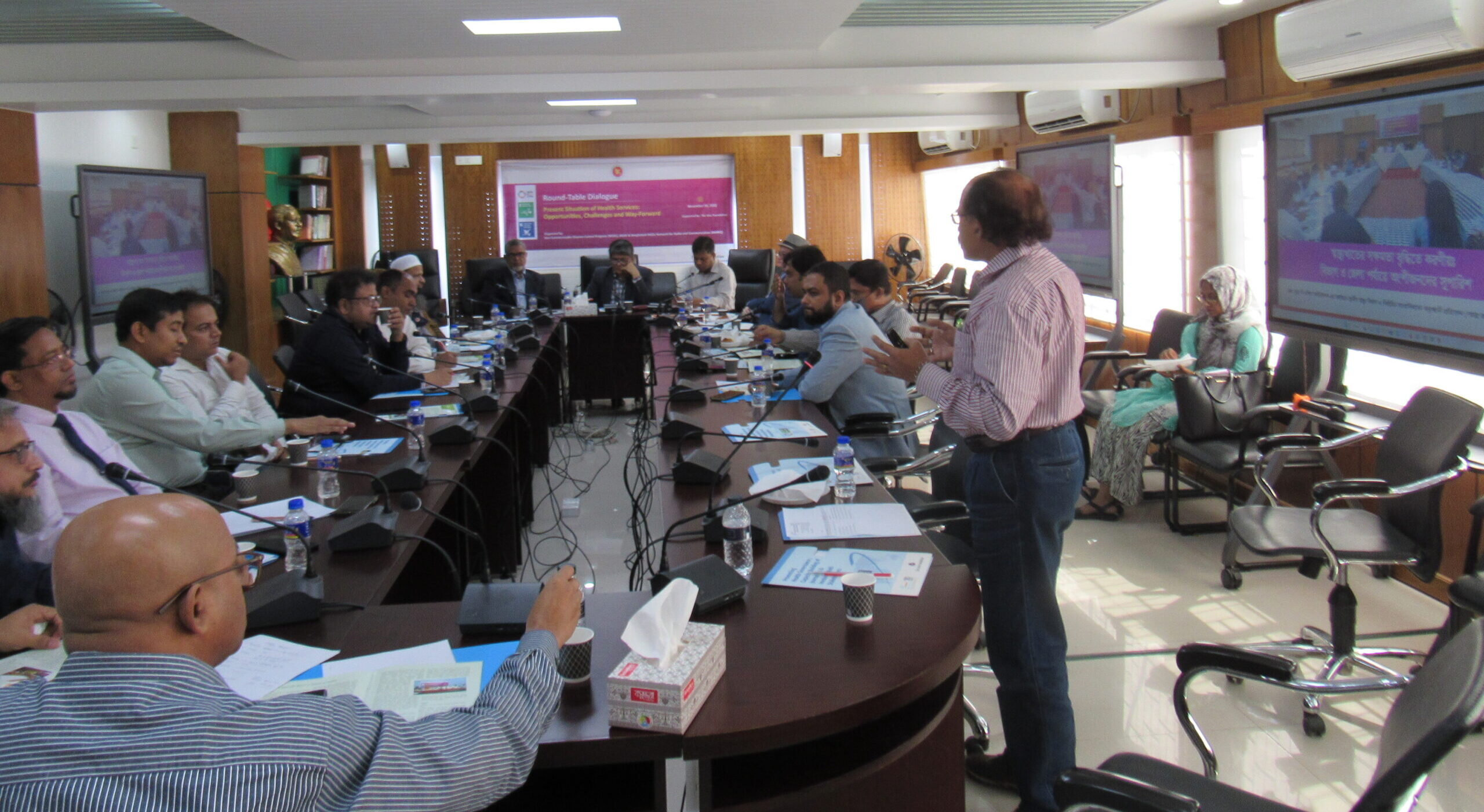
Other target beneficiary group(s)
The programs will be benefitted all community people as a whole by promoting health governance in Bangladesh for ensuring quality health services for all.
Please describe how and where this project is replicable.
The activities are to be implemented across the country in achieving goals SDG-3, Health and well-being. The country particularly broadcasters and multi-stakeholders involved in working with the identification to gear up the governance process in implementing government initiatives. Concerned Service Providers who are positive for providing their services, will be carried out through a series of programs, which is replicable in any community.
As community leaders have always inspired the marginalized to share opinions to address political and social action. Besides, it would be used as a tool for both active and passive communication and outreach worldwide. Civil society organizations can play a vital role in replicating the program. This approach can be replicated in other countries of the world.
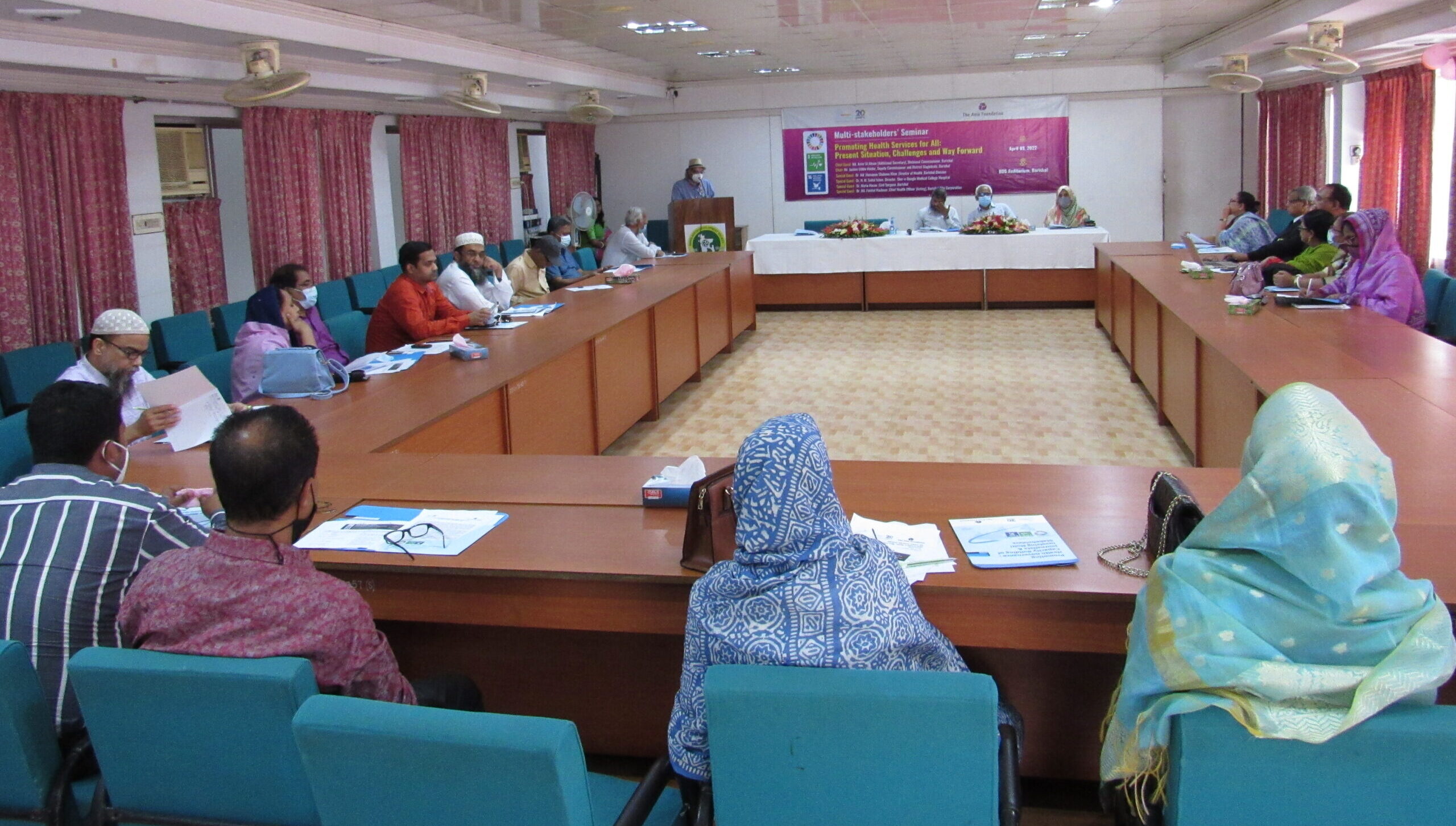 Please describe how this project is sustainable.
Please describe how this project is sustainable.
The ability of the Broadcasters, journalists and multi-stakeholders can play a very significant role in making the program sustainable which have enhanced through the intervention’s community, local and national levels. The journalists and broadcasters understand how harm and falsity are ways of thinking about ‘information disorder’.
Engage and invite multi-level stakeholders in the dialogues and round tables including the Minister, Secretary, Director General of Health Services Journalists, Policy Makers, Parliamentary Standing Committee Members, Chairman, Anti-Corruption Commission, National Editors, Senior Journalists, Health Journalist Forum members, Representatives from CSOs to increase interest for taking effective steps to establish governance in the health sector for promoting quality health services for all.
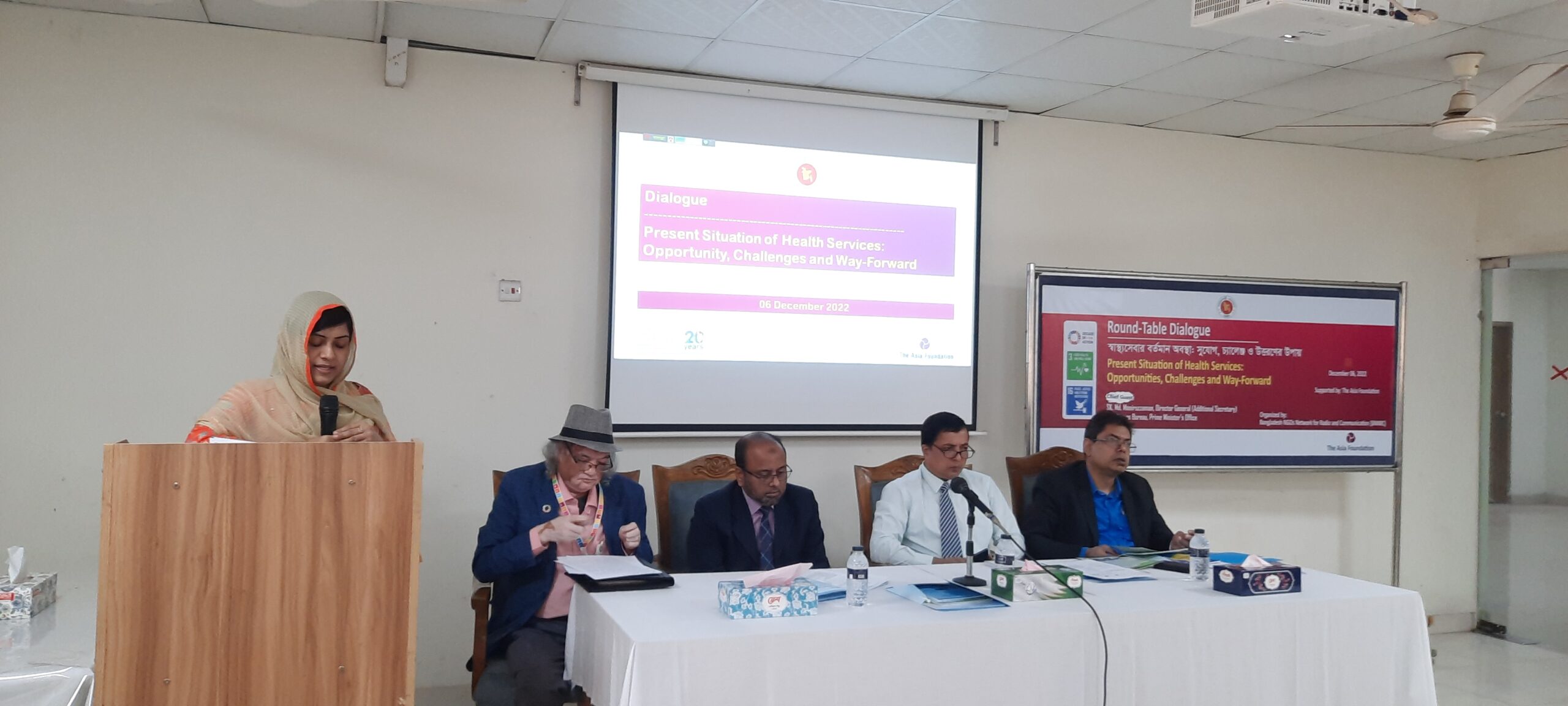
How does this project promote WSIS values in your community?
The project aims to provide capacity-building for journalists and multi-stakeholders promoting health governance issues in Bangladesh which is very essential for promoting health governance and achieving the SDGs.
Contribution to the implementations of WSIS Action Lines and the Sustainable Development Goals
Please describe how the project contributes to the implementation of the selected WSIS Action Lines and Sustainable Development Goals.
Through this intervention, WSIS values (Action line- C9) in Bangladeshi journalists, broadcasters’ communities and multi-stakeholders are strongly adhered and promoted extensively. This is done by building the capacity of broadcasters and multi-stakeholders for ensuring the health of all
Sustainable development goals (SDGs)
The capacity-building programs and achieved through this project are linked to the SGDs in the following ways:
SDG-5. Achieve gender equality and empower all women journalists: The program provided support for women journalists on the issue of constructive journalism primarily focused on developing credible news for the community.
SDG-8. Promote sustained, inclusive and sustainable economic growth, full and productive employment and decent work for all: The initiatives developed and certified digital competencies for the journalists in various levels that help to employment and decent work
SDG-9.C- Significantly increase access to information and communications technology and strive to provide universal and affordable access to the Internet in the least developed countries by 2020: The initiatives help to mobilize and aware the media houses for meaningful access to information and communications technology at a different level.
SDG-16. Promote peaceful and inclusive societies for sustainable development, provide access to justice for all and build effective, accountable and inclusive institutions at all levels: The initiative fighting fake news through fact-checking and verification techniques was focused on the topics of peace and inclusion and producing credible news and information contributing SDGS-16.2 in particularly.
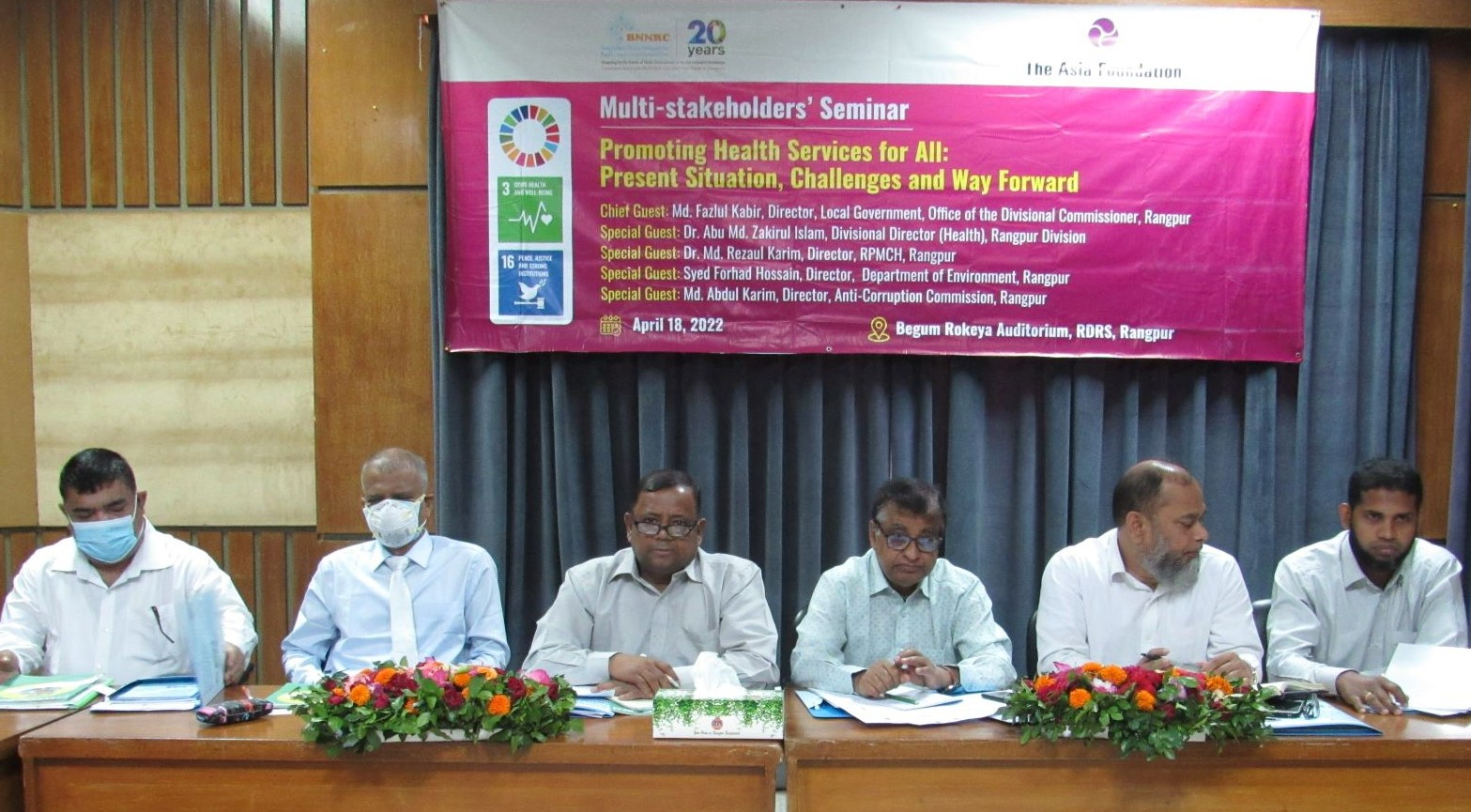
Executive Summary
Bangladesh NGOs Network for Radio and Communication (BNNRC) organized six Multi-stakeholders’ Seminars on “Promoting Health Services for All: Present Situation, Challenges and Way Forward” for an in-depth discussion on health-service issues to ensure quality health services for all with the support of The Asia Foundation at the six different division and district level of Bangladesh including Jashore, Sylhet, Barishal, Pabna, Rangpur and Noakhali.
The purpose of the seminar was to discuss with multi-stakeholders about the current status of the health sector, challenges for getting quality health services, and ways to forward at different levels to enhance the capacity of the health sector and consider how to make healthcare more accessible and utilize the existing resources properly.
The Elected Representatives include the Mayor of the City Corporation and Municipalities, Senior Government officials including Divisional Commissioners, Divisional Health Directors, Director and Deputy Directors of the Anti-corruption Commission, Range DIGs of Bangladesh Police, Deputy Commissioners, Police Superintendents of Police, Civil Surgeons, Upazila Nirbahi Officers and other senior government officials and renowned personalities were present as Chief, Special Guests at the seminar.
Around 250 participants in total from CSOs, Government offices, representatives from the Anti-Corruption Commission, journalists, teachers, elected representatives of the individual community, the representatives of cultural activists etc. participated in these seminars.
At the beginning of each seminar, the moderator welcomed introduced and conveyed greetings to the participants of the seminar. The keynotes addressing the seminar titled “Promoting Health Services for All: Present Situation, Challenges and Way Forward” were presented by the particular correspondent of each district. Then the participants took part in the lively open discussion and provided their valuable opinion and suggestions on health issues.
The guests mentioned the government initiatives to improve the health service situation as well as discussed some new and important issues like the disposal of medical waste, air pollution, physical and mental health, the timely initiatives to save lives and so on. The overall discussion provided the participants with much information and all levels of stakeholders promised that they will take the necessary steps to improve the health situation of the area.
It is hoped that the issues raised in the seminar and the open discussion will be able to play a helpful and effective role in ensuring the provision of quality healthcare to all, especially to disadvantaged and marginalized people.
During the implementation of the project following issues have been emphasized. The media cannot always guarantee ‘truth’ but being accurate and getting the facts right remains a cardinal principle of media. This means not acting, formally or informally, on behalf of special interests and declaring anything that might constitute a conflict of interest, in the interests of transparency. Transparency in practice supports accountability and assists in the development and maintenance of trust in journalism. Fair reporting of information, events, sources, and their stories involves sifting, weighing, and evaluating information open-mindedly and perspicaciously. Providing context and presenting a range of competing perspectives builds trust and confidence in reporting.
People’s perception is very important regarding fake news, how it is being combated, and what else can be done to fight against the issue. In the context of Bangladesh, the spread of issues is very high. Bangladesh has experienced several incidents of mob lynching and hates attacks caused by the spread of inaccurate and misleading information on digital media. A series of mob attacks killed people after misinformation about child abduction spread online. Fake news led to violence when a Facebook post of a local Buddhist youth included a photo of a burned copy of the Quran. It was later found that the image was photoshopped and someone else posted the image on the youth’s Facebook page. Fake news has also been a growing concern in Bangladesh where duplicate websites copying some legacy news organizations were created to spread misleading political news at different times.
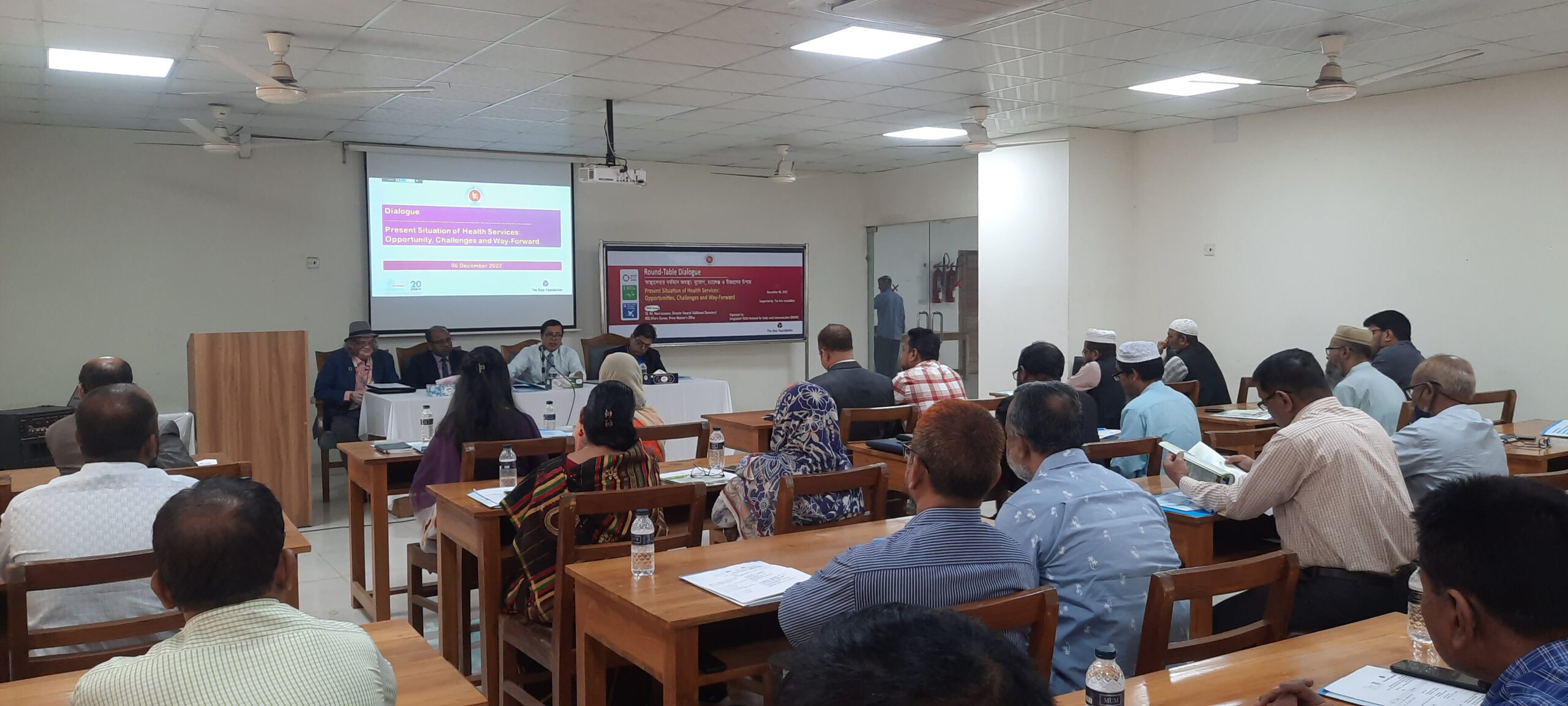
Implementing partners
BNNRC has implemented the project directly.
Impact
The journalists and multi-stakeholders with their new technologies and ideas are working for promoting health governance issues which can play a substantial role in promoting health governance in Bangladesh.
Challenges and future perspectives for the project
Mobilizing media and community on the theme would be a huge task with limited data and information from the ground. The maternal mortality rate is much lower than before. In this regard, due to the awareness and proper role of mother and child health centers, we are moving forward to achieve the goals of SDG. Bangladesh’s development and GDP growth rate deserve praise. We are gradually becoming a middle-income country from a low-income country. Compared to that, more attention should be paid to improving the quality of health services. Health services should be made more dynamic. The development of the health sector should be viewed holistically.
Of course, more investment in the health sector should be taken. Health care needs to be developed in coordination with the public and private sectors and proper utilization of what is available. In addition to the initiatives that have already been taken, a more effective role should be taken in implementing them. By implementing these initiatives, it will be possible to ensure health for all. It is also possible to implement the Sustainable Development Goals (SDGs), especially SDG-3 achieving good health and well-being, SDG-16 targets sustainable development to promote peaceful and inclusive societies, facilitate access to justice for all and build effective, accountable and inclusive institutions at all levels will be possible.
About: BNNRC
Bangladesh NGOs Network for Radio and Communication represents the community media sector to Government, Industry, Regulatory Bodies, Media, and Development Partners.
BNNRC has been struggling for the last 20 years to open up the community media (including Community Radio, Community Television) and giving focus on its vital role as the voice of the voiceless rural people. The reality of today is that the bondage between the community people and local-level community radio stations is getting strengthened day by day. Community Radio has now become their part of life and livelihood.


